Puppy biting is typical, expected, and an essential part of puppy behavior. It helps dogs develop a soft mouth and bite inhibition. As a dog owner, a puppy gently biting your toes may seem really adorable, especially when your pup is a few weeks old, but as the puppy grows older its biting may often seem like a menace.
Imagine having tattered carpets, damaged furniture, broken toys, and bitten hands! Suddenly your furry friend seems like a troublesome monster. So how do you stop your puppy from nipping and biting at everything that comes its way?
Contents
Know Why Puppies Bite and Stop Your Puppy from Nipping and Biting:
Before you begin training your puppy, it is imperative that you understand the reasons behind their biting and nipping. It is absolutely normal for a puppy to use its mouth to interact and communicate with its surrounding.
Puppies usually use their teeth to explore the world around them. They use biting to investigate all the curious things around them. Puppies also indulge in biting when they are excited, usually when they see children around whom they associate with toys, or when they see your moving hand and body.
Puppy biting is also a form of social play. It is usually not hostile or aggressive and is not intended to cause any harm.
Most puppies will gnaw and bite everything that comes their way if they are experiencing teething troubles. Puppy biting teaches your cuddly buddy the important lessons of Bite Inhibition. It helps the young puppy acquire the capability to have command over how soft or hard they are biting.
Knowing the Difference Between Playful and Aggressive:
Puppies usually use their teeth for playing and social exploration. Very rarely do young pups bite and nip to be aggressive to others.
However, on several occasions’ pups bite and growl together making it difficult for owners to differentiate between playful and aggressive behavior. A puppy biting and growling doesn’t necessarily mean that it is behaving aggressively.
The best way to find out if your pup is behaving in an aggressive or playful mode is to recognize the signs of aggression that it may use frequently.
This usually includes the following:
• Facial expression and body stance: A relaxed face indicates normal playful exploration. However, if the biting is accompanied by a crinkly face, snarling stance, and stiff body, it is an indication of aggressive conduct. A playful dog will not stiffen up and it will usually have friendly and playful behavior.
• Time of biting: If biting incidents take place after your pup’s terrible tantrums and after a show of unwanted temper, it may mean that the purpose of biting was aggression and hostile.
If your little puppy continues to bite out of aggression, a lot of care should be taken as an aggressive dog can cause severe injury in case it belongs to a strong breed with a powerful jaw and a sharp bite.
When Do Puppies Stop Biting?
Puppy biting can be a difficult phase for any dog owner. If you are wondering when your puppy will stop biting so much, you may have to wait till they are about six months old.
Little canines have 28 little baby teeth that fall off with time. These spiky teeth fall off around when they are around four to six months old. And it is during this time that their little mouth begins to make room for 42 adult teeth. And soon the adult teeth begin to grow.
Like human kids, teething can be a painful experience for young puppies too. The puppies can experience extreme discomfort, sore gums, and inflammation of gums that leads to an increase in biting.
In the natural process, puppy biting will cease after the puppies lose their baby teeth. In most cases, puppy biting will stop around the age of six months when all their milky teeth have fallen off and adult teeth have set in.
Are Puppy Bites Dangerous?
Teething pups are prone to biting everything that comes to their mouth. This includes human toes, feet, fingers, and hands. Most dog owners may suffer from “play-bites” as a result of frequent puppy biting.
Most pups are about four to six months old when they bite the most. At this stage, as the dogs have weak jaws, they are not able to cause a serious injury with their puppy bites. However, on the flip side, these adorable bundles of joy are equipped with razor-sharp teeth.
Even playful dog biting by little pups may really hurt when they bite you. If the puppy bite continues even after a pup has grown past the age of 6-9 months, it may cause serious injury. By this time, the pup may have a sharp canine tooth growing: these are dangerous for humans, especially little children.
How to Train Your Puppy to Stop Nipping and Biting?
Are you perplexed on how to stop a puppy from biting your feet and hands? Are you worried that your puppy won’t stop biting your other dog? Is it a challenge for you to stop your dog from nipping when excited?
Here is a detailed guide to training your puppy to stop nipping and biting:
• Prevent triggers & remove attention:
Dog owners must remember to always offer toys to their puppy, especially during training times. Puppies are curious little creatures. And while exploring the environment around them, they have a persistent need to chew things that come their way. Unfortunately, that includes your hands as well. It is important to distract them from human skin. If you provide your puppy with attractive and appealing toys, they will be enticed with the playful toys, chewy toys, and stuffed animals. And it will soon forget nipping at your feet and hands.
• Redirecting your little puppy away from children can be a challenging task. Little puppies associate little children with toys. They are very excited to see young kids running around. It can be really tricky to deal with young children and puppies simultaneously. The first step is to teach the puppy to play and interact with lively toys.
However, it is also important to teach your child the correct way of playing with your pup. Inculcate a habit in your child to avoid running around in the presence of the puppy unless they are pulling or tugging at a toy to redirect the puppy. A running child seems to be a fun and entertaining prospect for the mischievous little canine. So, if your child is running around your little pup is sure to follow it with excited puppy biting.
• Teaching your child to “BAT – Be A Tree” is an important lesson. Teach your little one to stand up straight like a tree, with their arm folded like branches, and their feet firmly on the ground. Also, coach your child not to panic. A standstill child appears boring. The puppy will not find him to be exciting any longer. Eventually, the pup will lose interest in the child and will cease its playful biting. The “BAT-Be a Tree” technique is also helpful when your children encounter other unknown dogs in the neighborhood. It is vital to remain standstill if you are feeling threatened by dogs.
• A lot of times, a puppy may remain excited even after your child stops moving. At such times, you may have to resort to a “time-out” technique. Like children, dogs need to be given a “Time-Out”. During this time, they learn to cool down, and then they are redirected to toys or other activities.
• If the puppy is excited to see you walking about while doing your daily chores, you may try to distract the puppy from your feet by tying toys to your feet, so that they nip at the toy and spare your feet from their incessant biting.
• Positive Reinforcement:
Little puppies are like humans in so many ways. Like human kids, positive words of encouragement will work more than negative punishments. Young pups do not like to be punished. Dog owners should remember to avoid the following punishments when they are training bite inhibition to their pup:
- Tightly holding their mouths closed
- Snapping or slapping them on the nose
- Being roughly pulled away on a leash
- Use of shock collars
Instead, the use of praise, motivation, and encouragement will go a long way in teaching your puppy about bite inhibition.
Dog owners may also provide food treats to their little bowwow as rewards, to encourage it towards better behavior.
• Other Things That Will Help:
- Train the puppy to respond to commands like “Stop”, “No”, “It’s Ok!”
- Each puppy should be provided with a comfy corner, a playpen, or crate where they can be put if they need to settle down.
- Daily exercise and running will help the puppy burn out unwanted energy.
- Teach the puppy about “Hand-kissing” or “Hand-targeting”.
Training your dog to stop biting and nipping may seem like a colossal task on hand. Pups are quick learners and are sure to quickly pick up the nuances of Bite Inhibition with regular and persistent training.
These small steps are fundamental in helping dogs and humans cohabit peacefully, safely, playfully, and happily together.
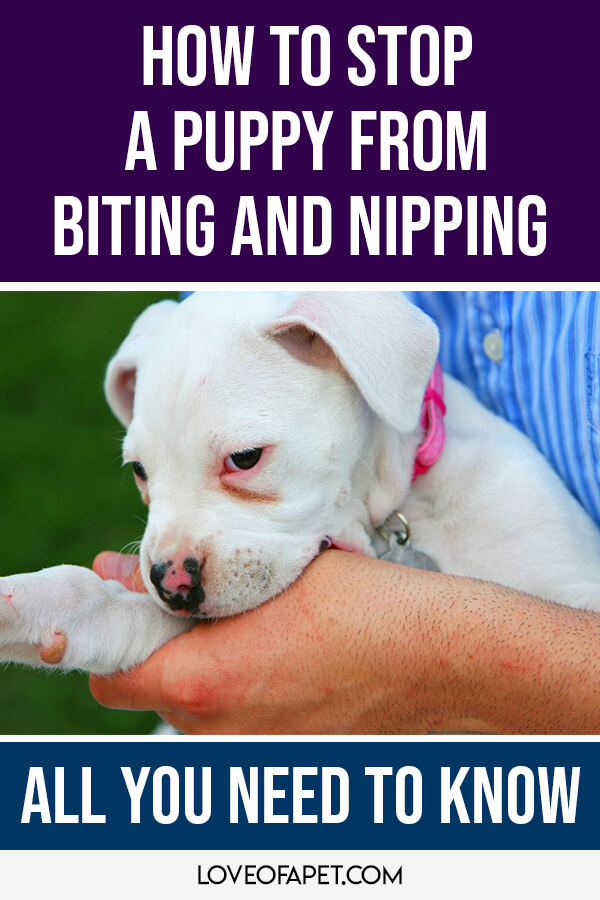
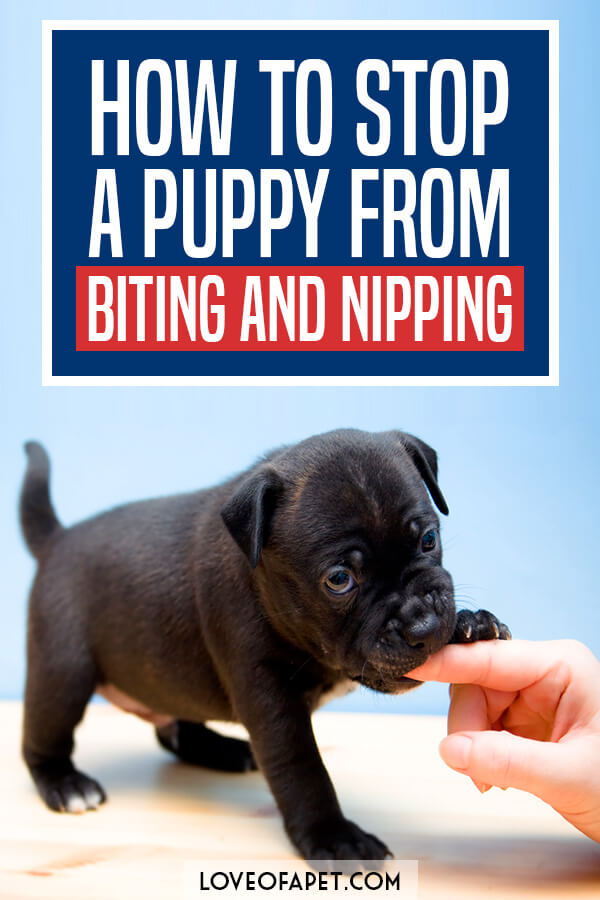

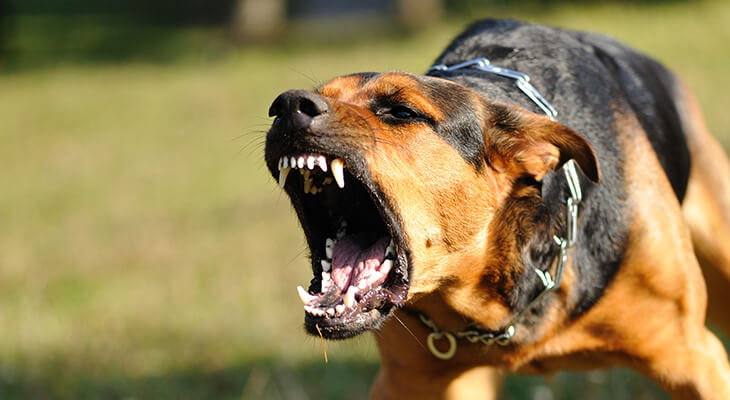
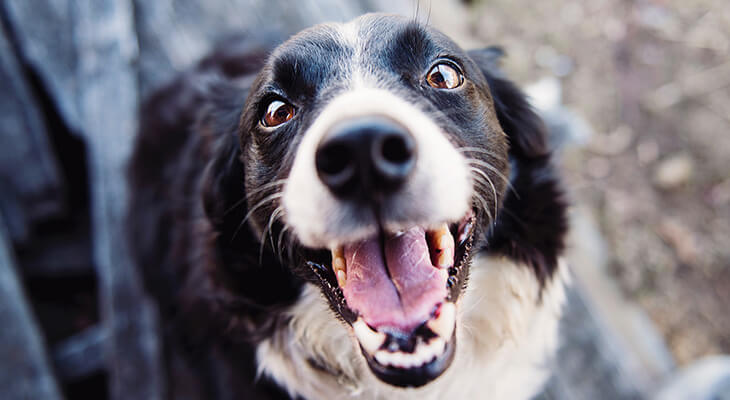
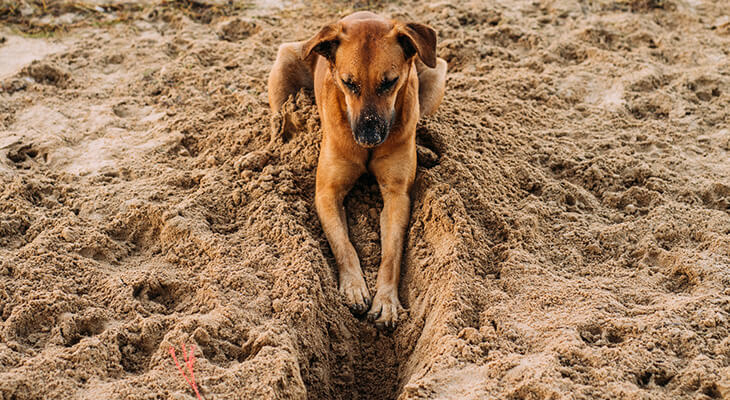
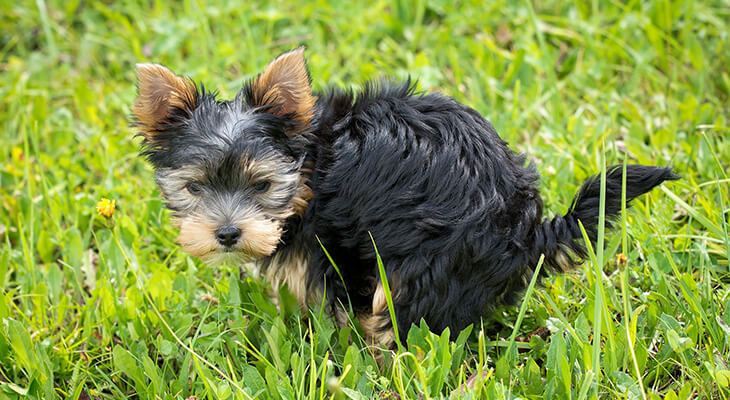
I have read the techniques and looking forward to doing them with my 4 month old Bichon, Bentley!
Regardless of any techniques I try with my now 6 month old chihuahua puppy; she still bites, she is very dominant and most times refuses to accept me as her pack leader. I’ve trained 3 other dogs from puppies and I’m quite perplexed by her behaviour. The only thing that comes to mind is that about 2 weeks after I got her I became very ill and I was hospitalized for over 2 weeks and all told had to have others take care of her for about a month. I had her back with me just before she was 3 months old; she has 100% more respect for my husband than she does for me, yet I’m the one that’s raising her. Any advice would be helpful.
Gabriella
Puppies are a lot of work. This is especially true when they’re teething and they want to chew on everything, including your furniture and your hands. Here are some tips: Make sure that your puppy feels confident. Puppies that feel threatened or scared will likely bite out of fear. Give your puppy plenty of time to get used to their new home and family members. Use a gentle tone when interacting with your dog and avoid playing rough, aggressive games.